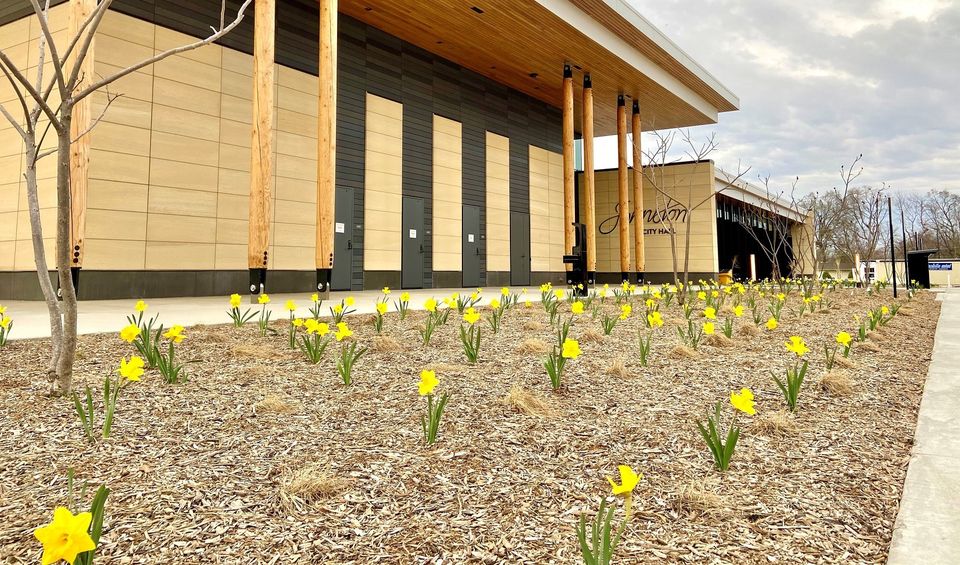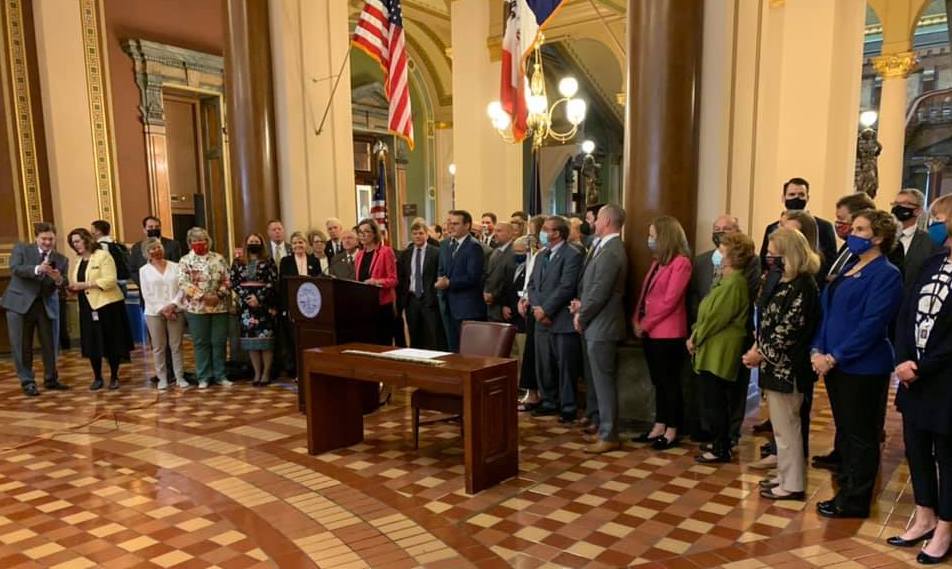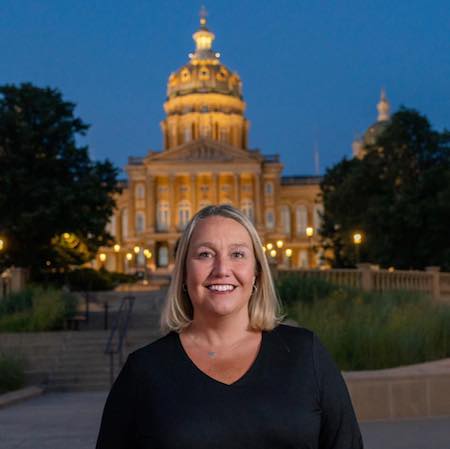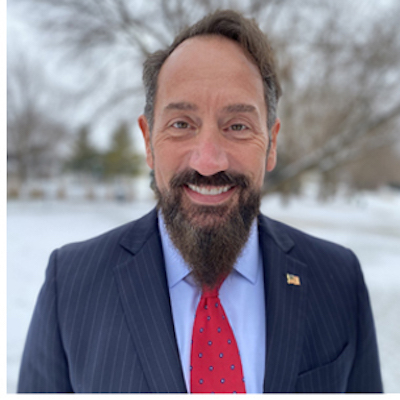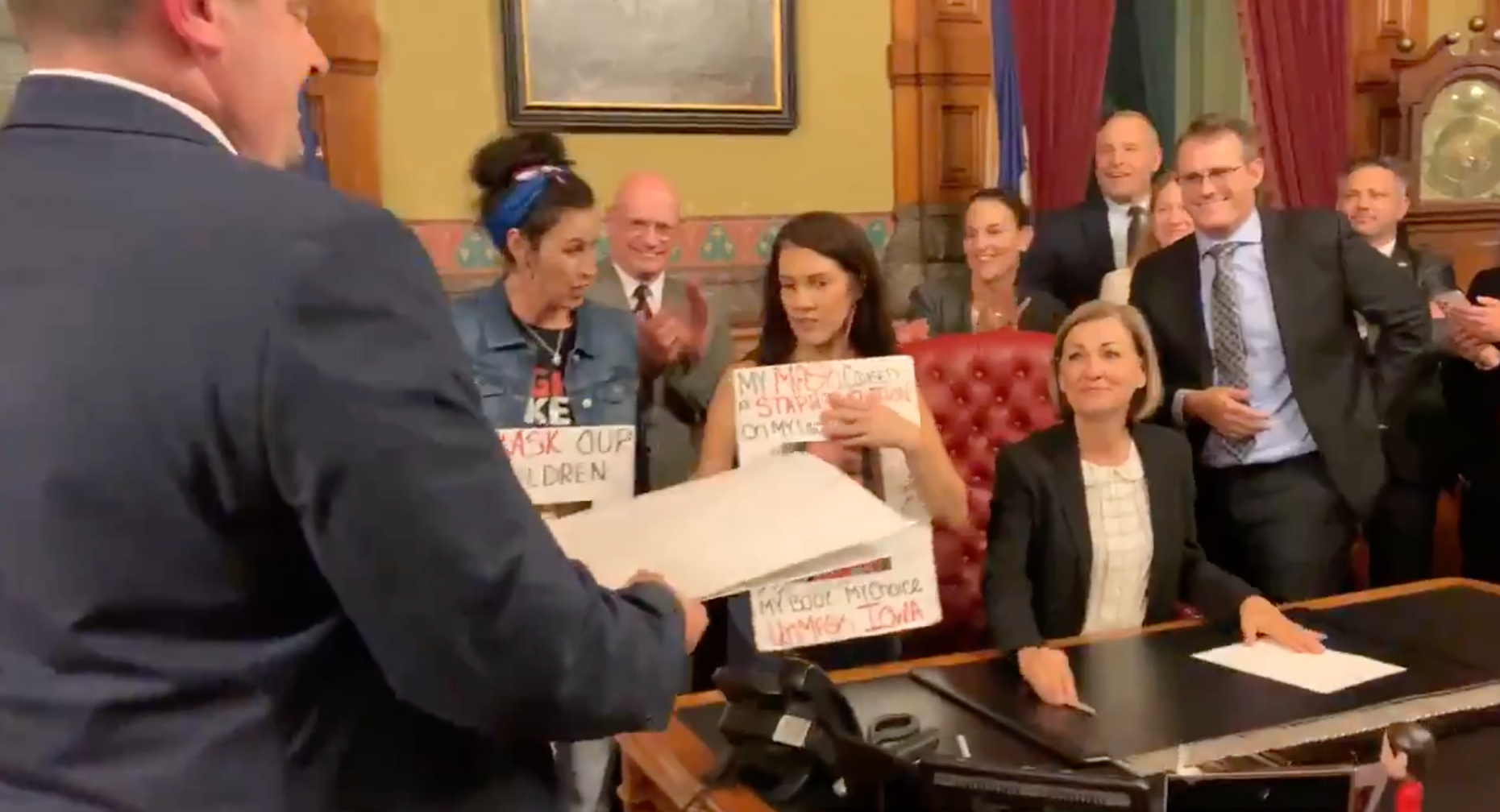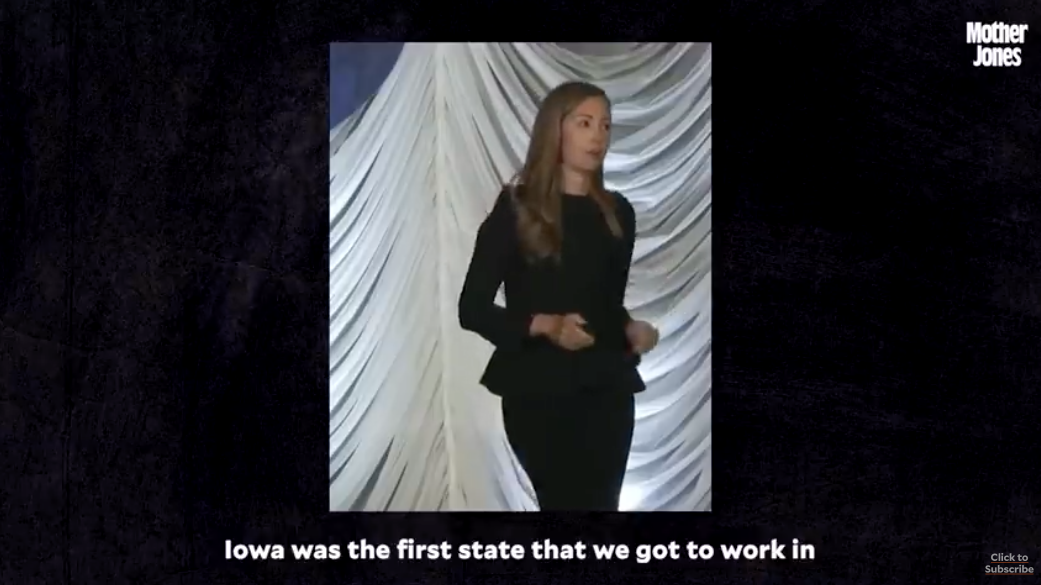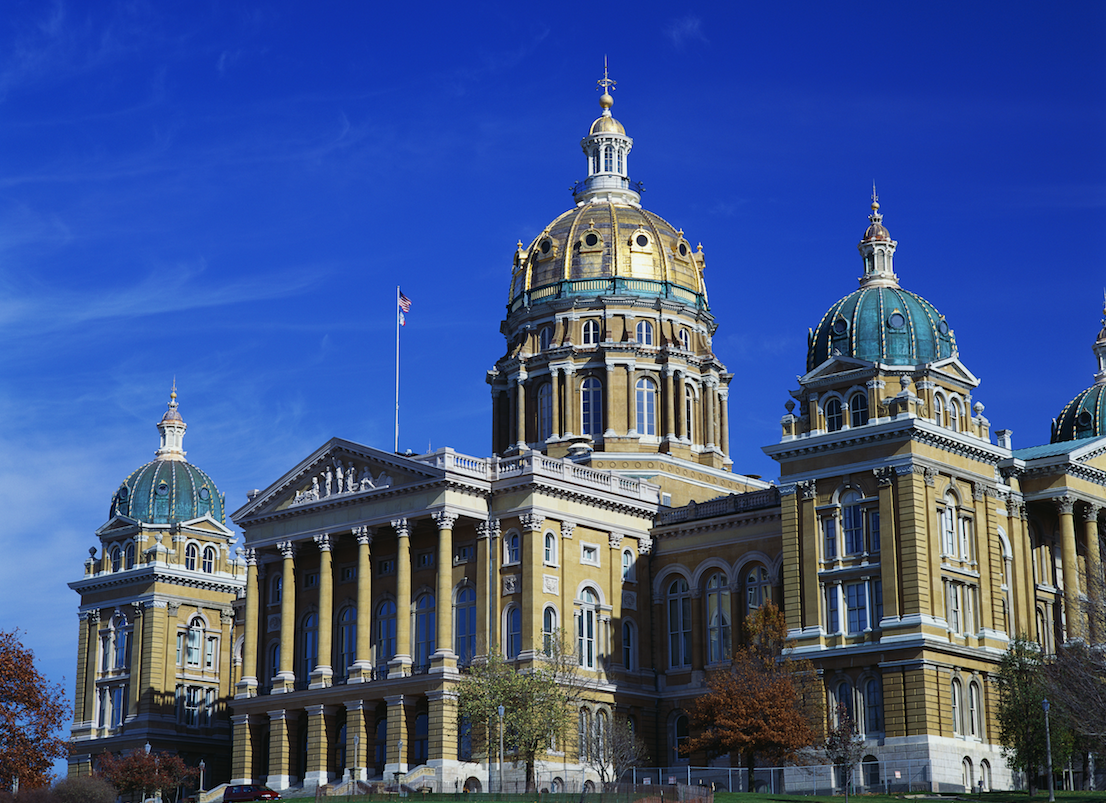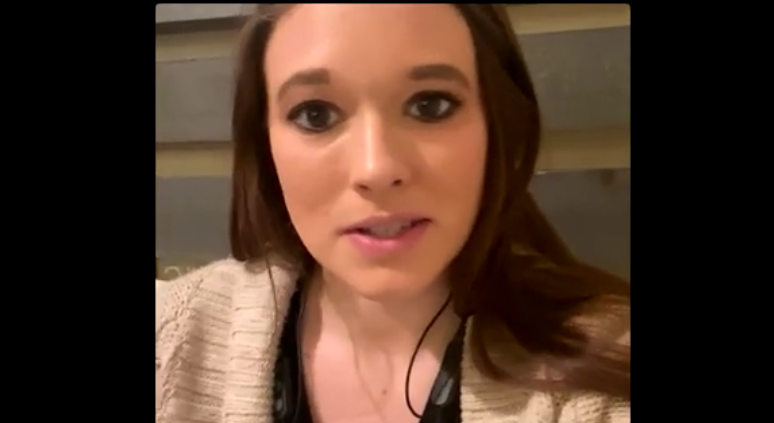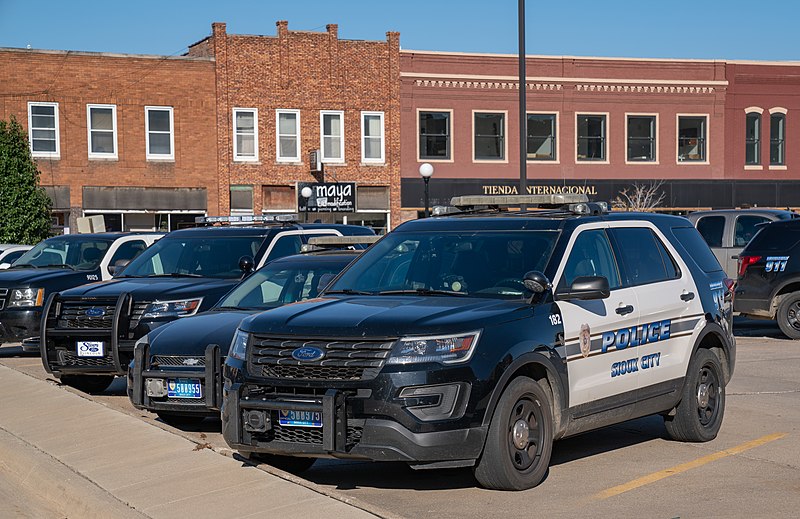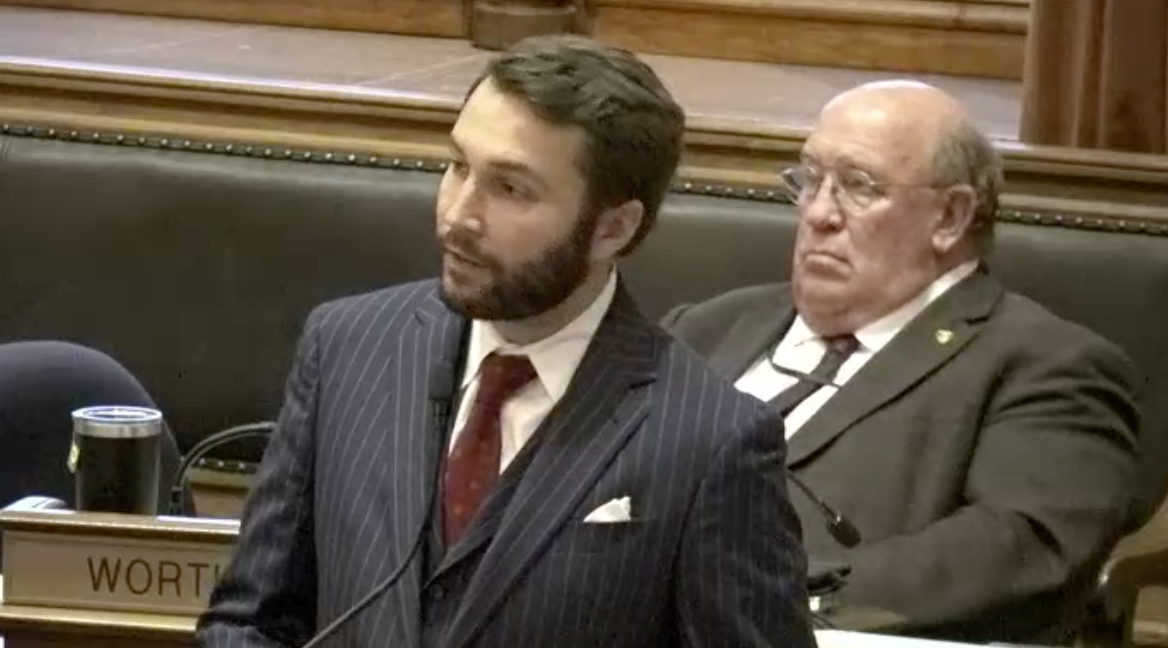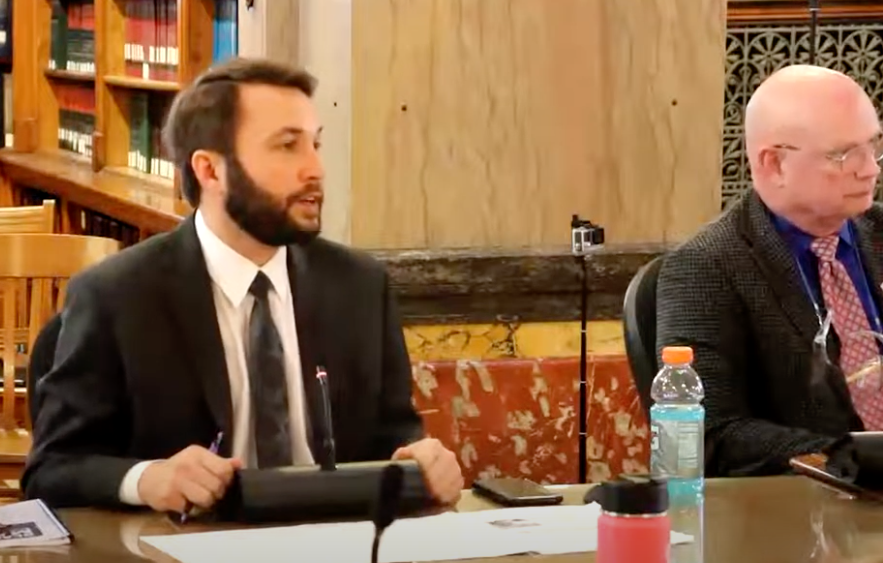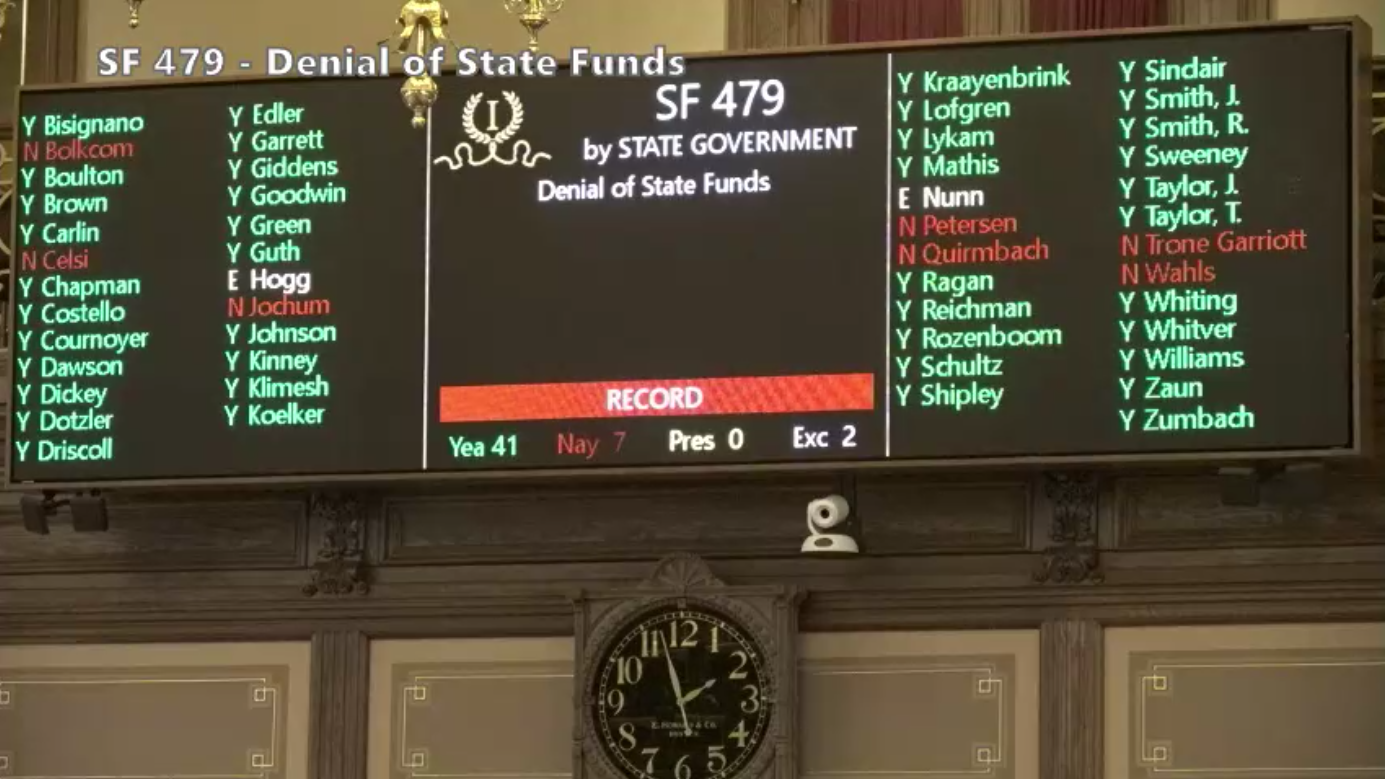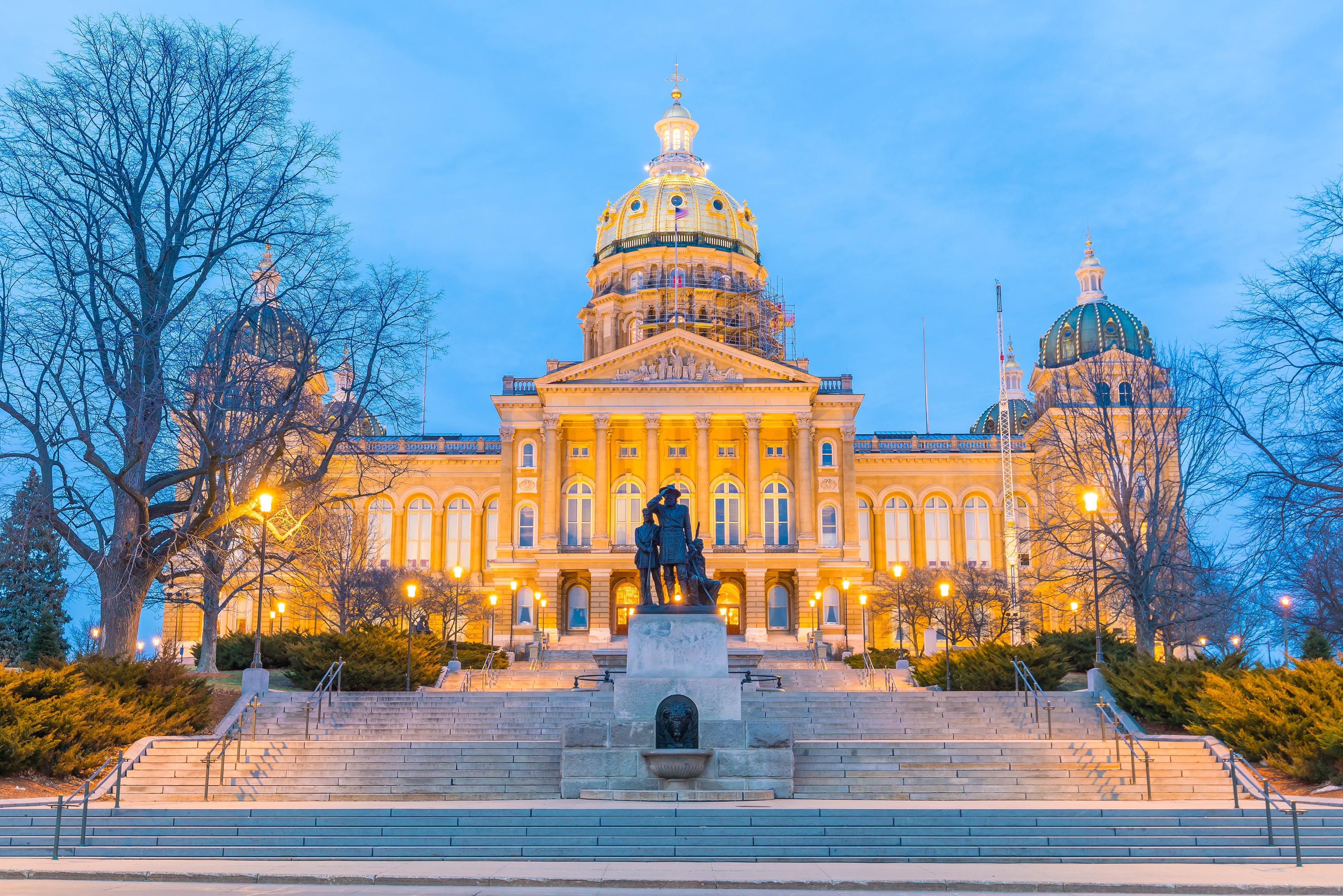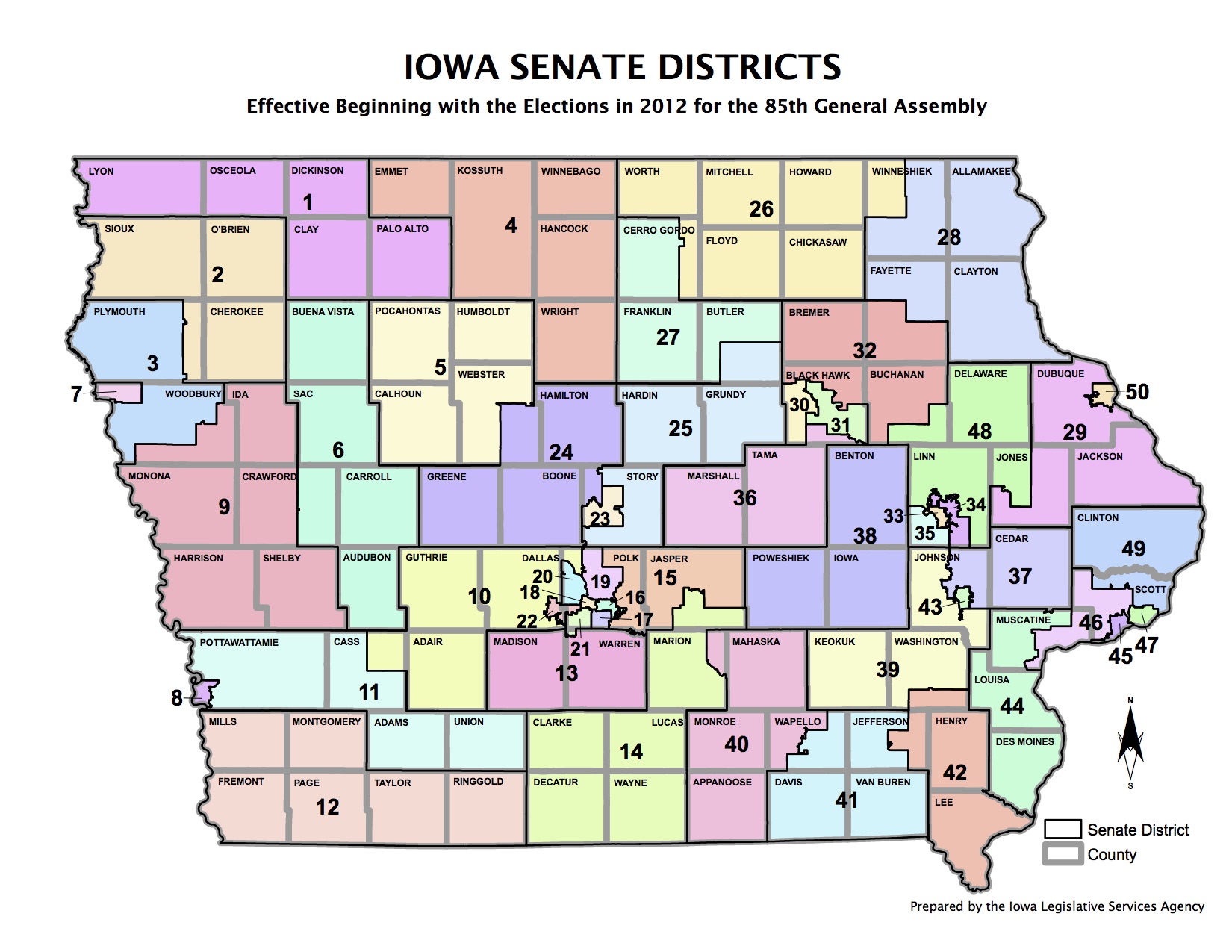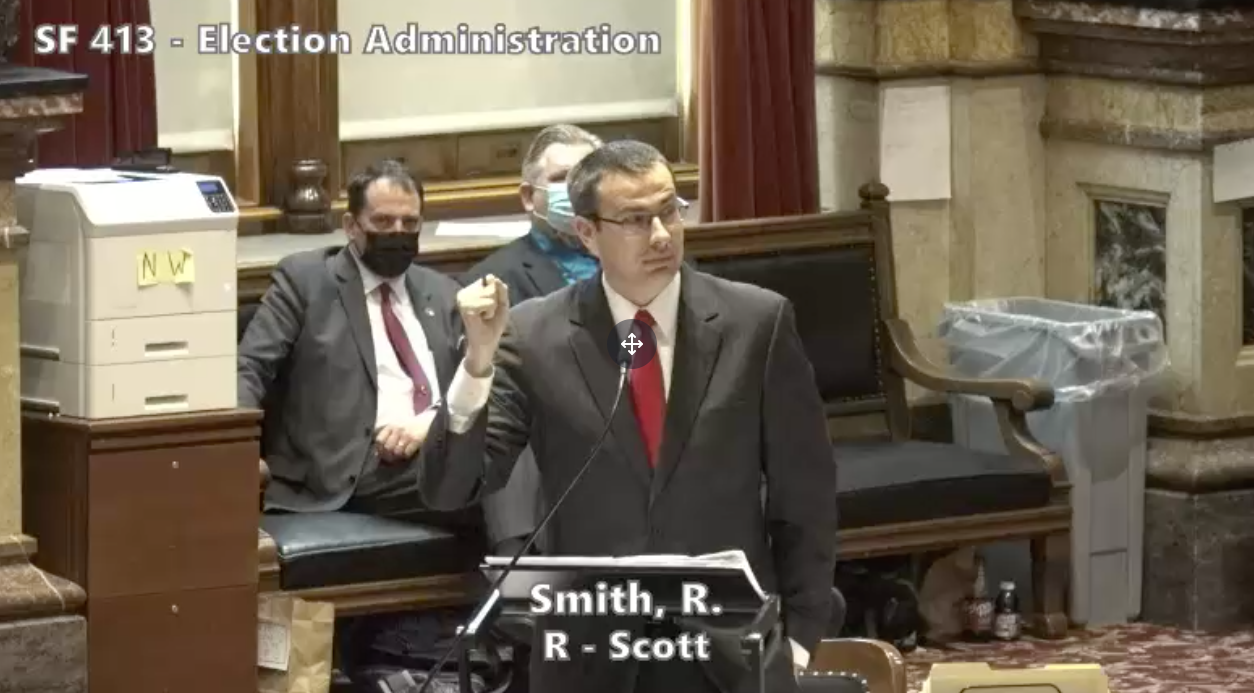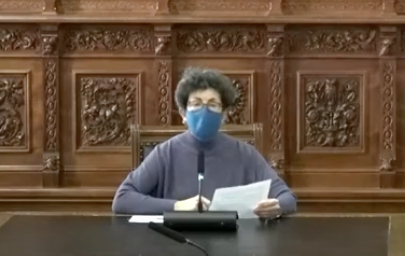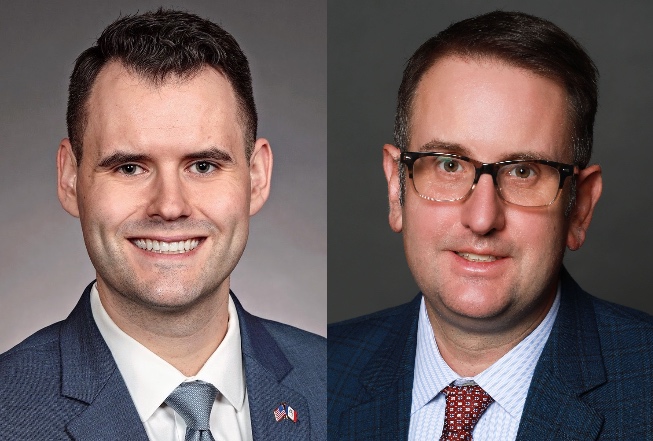Bryan Burkhardt won the June 22 special election for a Johnston City Council seat despite a strong write-in campaign by local Republicans on behalf of Jim Gorsche. Unofficial results posted by the Polk County auditor’s office showed 1,032 votes for Burkhardt (51.1 percent), 783 write-in votes (38.8 percent), all but six of which were for Gorsche, and 203 votes for Adam Haar (10.1 percent).
Turnout was just under 14 percent, not bad for a summer local election, which received little media coverage.
Burkhardt, a Des Moines Area Community College professor and small business owner, will serve the remainder of Scott Syroka’s term, which runs through 2023. Elected to the council in 2019, Syroka resigned early this year to serve as deputy director of communications in the Biden-Harris administration’s Office of Personnel Management. John Temple has been filling the vacancy on the council since February; he didn’t compete in the special election.
Local elections are nonpartisan in Iowa, but Burkhardt and Haar, the top two vote-getters in the city’s May 25 primary, both had support from area Democrats. Gorsche finished third in the four-way primary.
Continue Reading...
